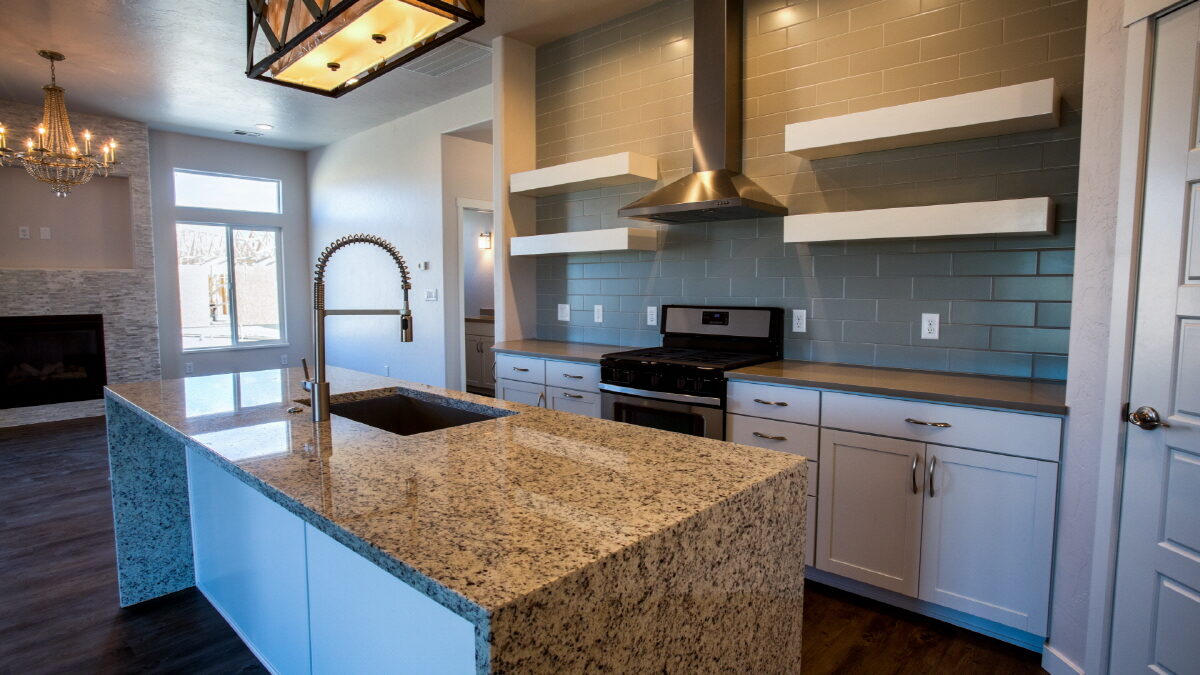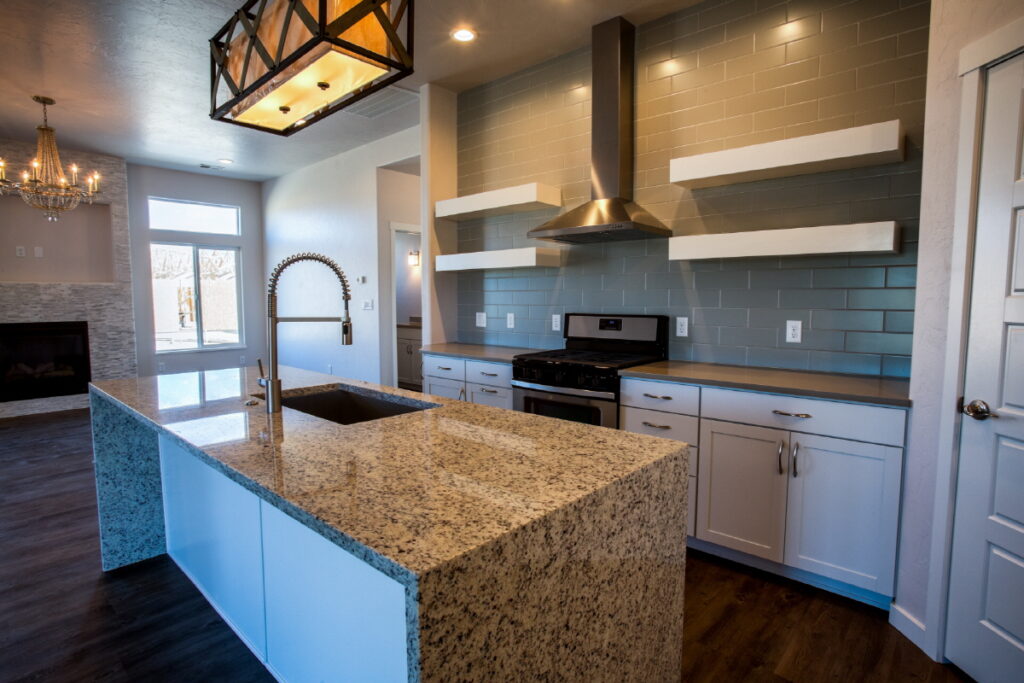
Granite is one of the most popular countertop materials, and there are many advantages to choosing granite for your residential kitchen. However, there are things you’ll want to know about this material before you commit to it. In this article, we’ll explore the pros and cons of granite countertops, so you can decide if granite countertops are right for you.
As you will discover in the article, there are some advantages and disadvantages to using granite in your kitchen. Some granite characteristics can be both a pro and a con, depending on how you look at it.
Pros of Granite Countertops
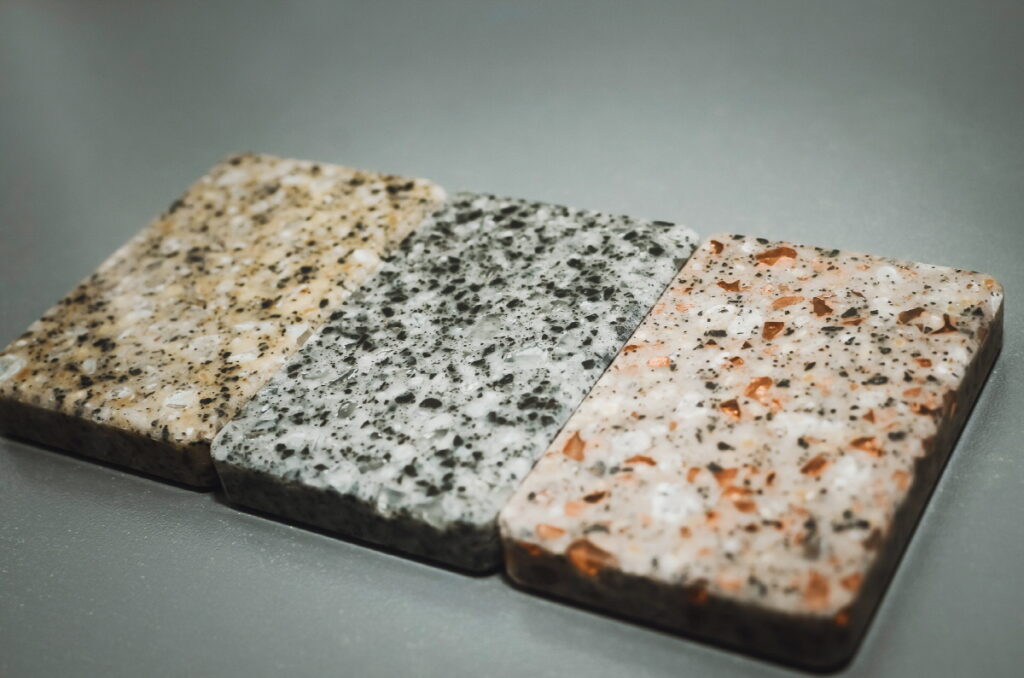
· Granite Countertop Colors & Aesthetics
If you want distinctive countertops that are unlike anyone else’s, then granite is a great choice. This natural stone material can help you stand out and make a statement since every slab has its unique designs, colors, and patterns.
Granite comes in many colors, including white, brown, grays, creams, and even bolder shades such as green, pink, or blue. Regardless of your color, granite will add an earthy, organic feel to your home. Whether you’re looking for countertops for a modern or traditional home, there’s granite available to complement your design.
· Granite Countertop Costs
Granite is a premium countertop material and may not fit into some budgets. Still, if you can afford this natural stone product, the investment may be worth it. Granite is a highly durable product that will last a lifetime with minimal care and maintenance. Granite may even add value to your home and help with resale value.
Once you install granite countertops, you won’t have to change them or worry about damage, delamination, or other flaws. Granite countertops are strong, resilient and maintain their appearance, even in the busiest home kitchens.
· Cleaning Granite Countertops
Cleaning a granite countertop is easy. Dish soap, diluted with water, and a sponge or clean cloth are all you need for daily cleaning. You can also use most pH-neutral household cleaners on granite. If you wipe away spills and keep your granite countertops clean and dry between uses, they’ll continue to look great.
You’ll also want to ensure you seal your countertops regularly, typically once a year, to add a layer of protection to granite’s porous surface. With proper sealing, granite countertops will resist most stains, though you should only let acidic foods like wine or fruit juices remain on the countertops for as brief a time as possible.
· Sealing Granite Countertops
With proper, annual sealing of your countertops, you’ll have the protection and coverage you need to keep your countertops clean and sanitized. Sealing granite is a necessary part of ownership to keep it stain and moisture resistant. Sealing also adds hygienic properties so that bacteria, molds, and germs don’t seep into pores or cracks.
· Granite Countertop Maintenance
The most important thing to remember about granite countertops is that they require routine sealing. The type of sealant and frequency will depend on the finish you choose — polished, honed, or leathered, and the manufacturer’s recommendations.
Cons of Granite Countertops
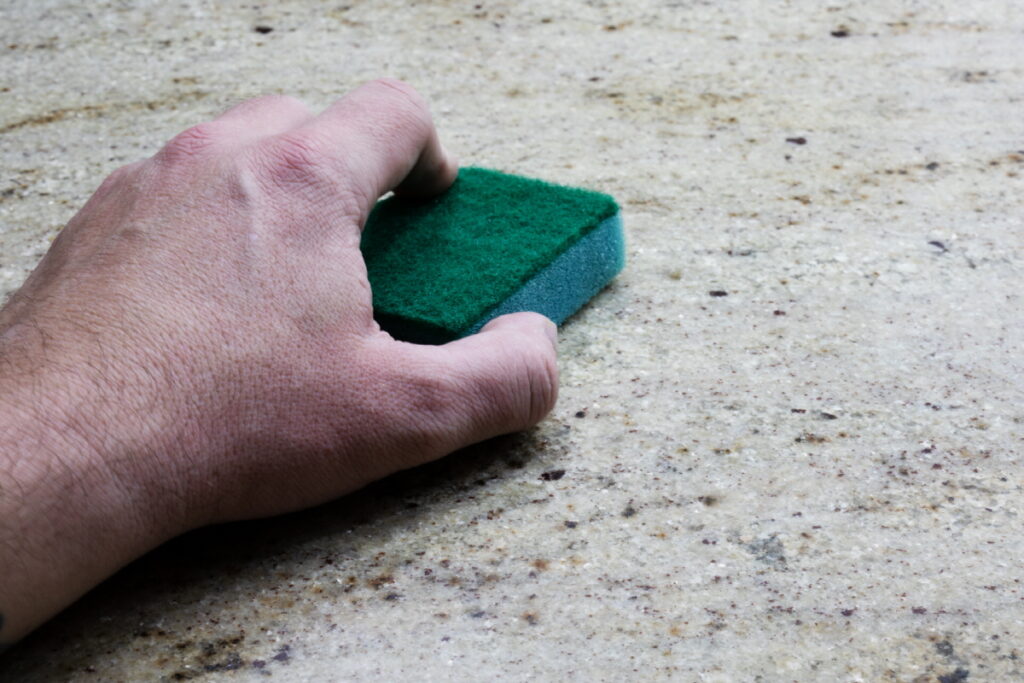
· Granite Countertop Colors & Aesthetics
Remember when we said every slab of granite has a unique appearance? Well, that uniqueness also comes with a drawback. The slabs and samples you use to choose your countertop will look different from the installed product, so you may be in for a few surprises when you see the final product.
Granite’s colors and patterns are made by nature, so finding exactly what you’re looking for may take a while. Colors and styles will be dictated by what’s available, and many of the choices may look outdated or overused in more modern kitchens.
· Sealing Granite Countertops
If you only remember one thing from this article, it’s this: granite countertops require routine sealing to make the material resistant to moisture, stain, bacteria, and germs. You need to seal your countertops regularly to have a thoroughly hygienic surface. You’ll also want to pay close attention when applying sealants to seams and joints; these crevices can be a breeding ground for mold and bacteria.
There are several steps involved in properly sealing your granite countertops. If you aren’t the confident do-it-yourself type, look for a professional fabricator who can do this maintenance for you. Regardless of your skill level, you’ll want to discuss sealing options and maintenance before buying.
· Granite Countertop Costs
Granite countertops come in a range of prices, and you can find budget-friendly options. However, you’ll need to keep the routine maintenance in mind, along with the added costs of installation, fabrication, labor, and sealing. To get high-quality granite in the colors and patterns you’re looking for; you can expect to pay $3,000 or more for the average kitchen and between $1,200 to $2,000 or more for an island.
· Granite Countertops: Chips, Cracks, and Repairs
Granite countertops are strong, robust, and resilient but aren’t indestructible. Granite can chip or crack around corners, edges, and seams. Heavy cookware, including cast iron skillets, can damage the edges if you aren’t careful. If you chip or crack your granite countertop, get it repaired as soon as possible by a countertop professional who can fill in the crack with color-matching epoxy to limit further damage.
· Granite Countertop Weight
Since granite is a natural stone, it can be very heavy. You’ll need professional installers to handle the slabs and install them correctly. You’ll also want to be sure the countertop structure can withstand the weight before installation. The weight of the material also adds to its costs as it can be expensive to transport, ship, and import the material from one location to the next.
Are Granite Countertops worth it?
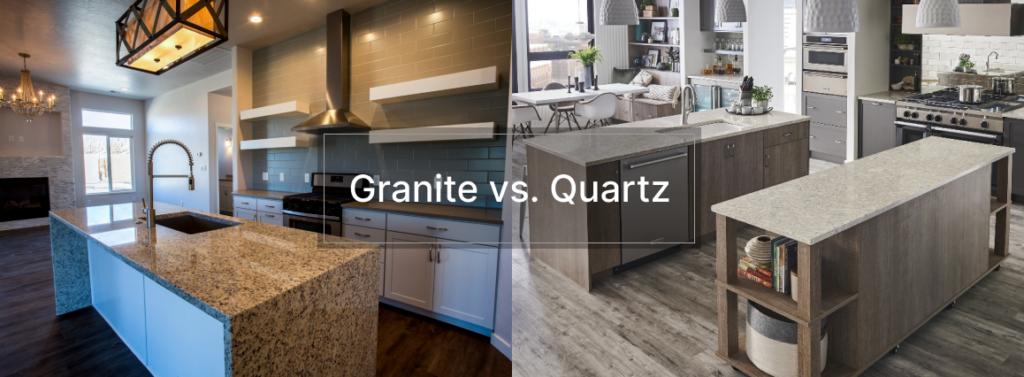
For many, the investment in granite countertops is worth it. It’s a durable, practical material that looks great and will last a lifetime. For others, the maintenance and costs may be a detractor.
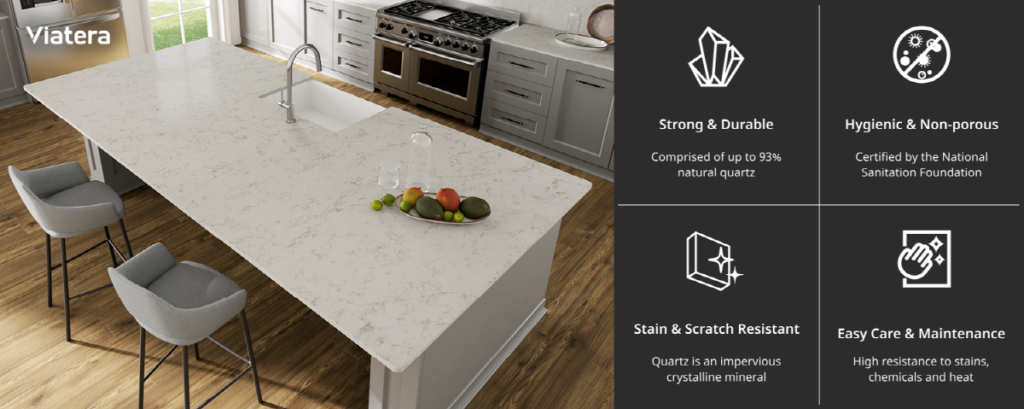
If you’re looking for other options, there are plenty of materials to choose from. Quartz is currently outpacing granite in popularity due to its design flexibility and low maintenance. Many quartz styles resemble granite, making it difficult to tell the difference between the two materials. If you’re considering granite countertops, you’ll also want to look at quartz, sometimes called engineered stone. Quartz is non-porous, low-maintenance, and less expensive than most granite.
Contact Us
If you’re building a new home, remodeling, or updating your kitchen countertops, let’s talk about your project. Visit our website and complete a form, and one of our experts will respond with an email to ensure you get the ideal countertop for your kitchen project.

